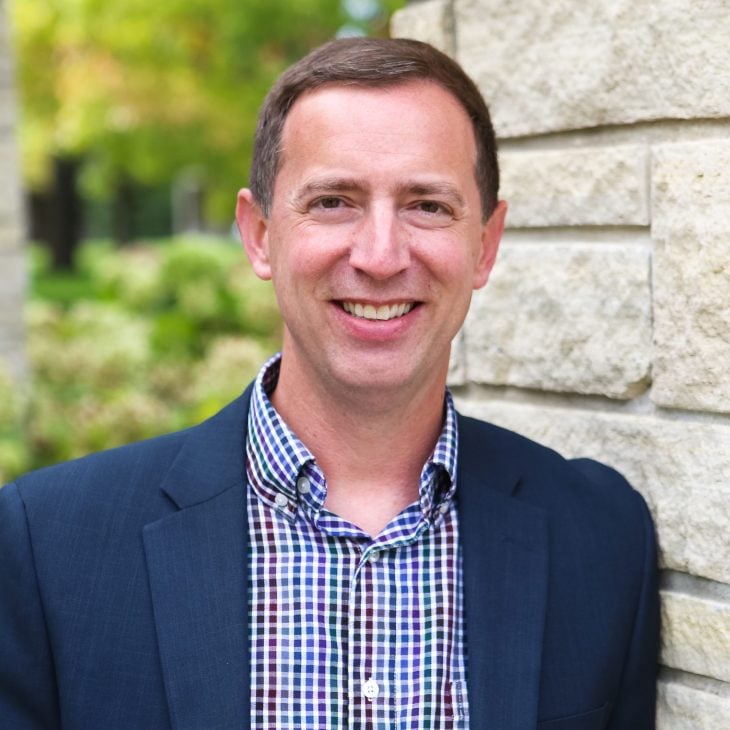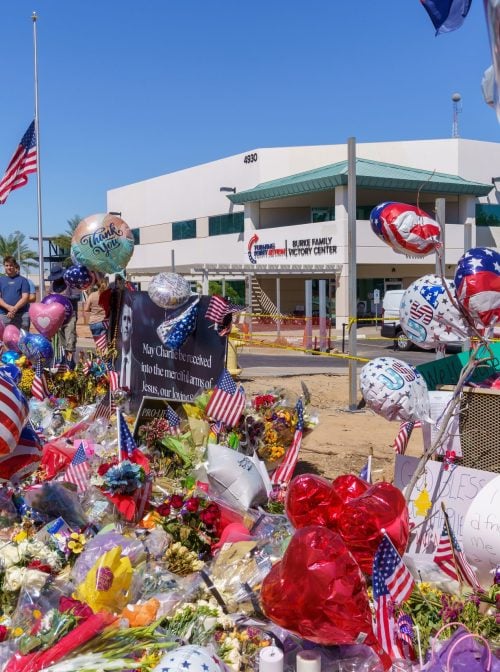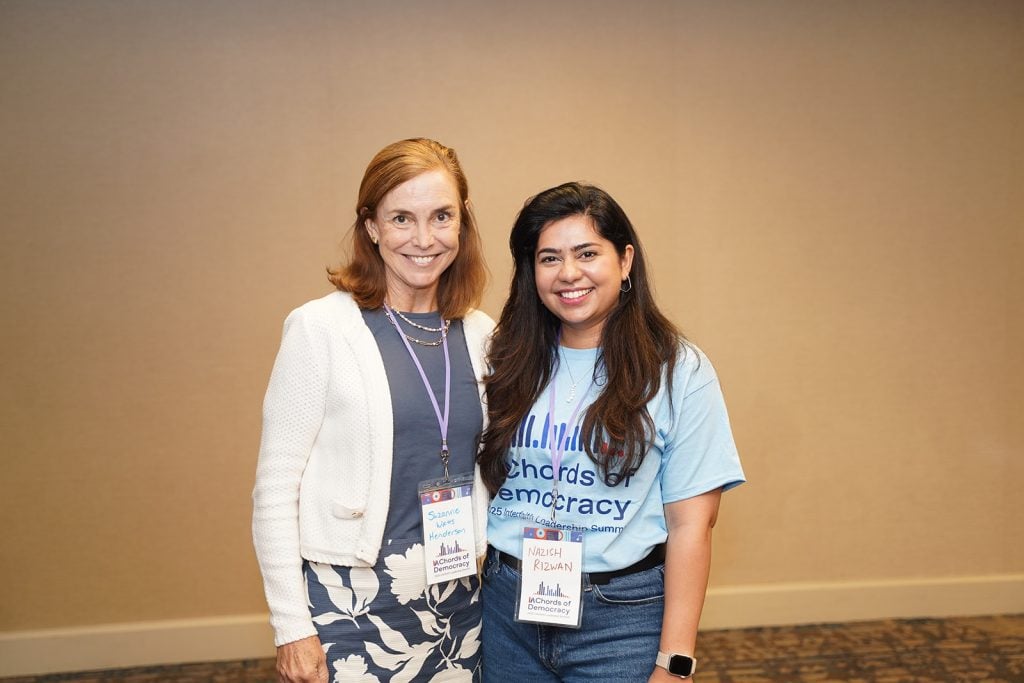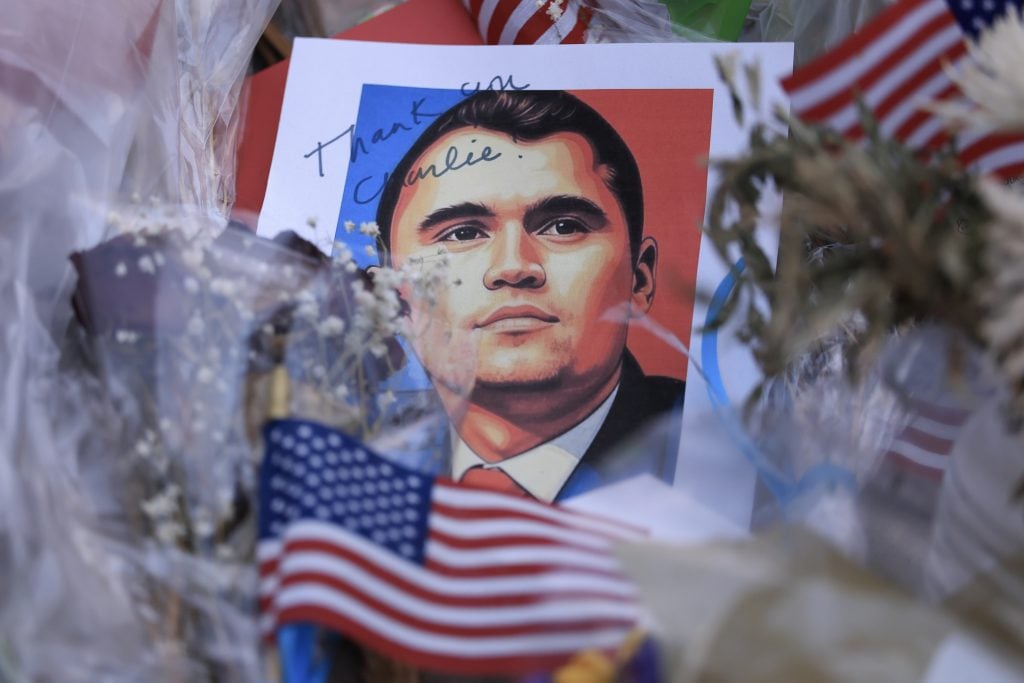“Words create worlds.” Abraham Joshua Heschel uttered these words as a way of acknowledging that the horrors of the Holocaust did not begin with gas chambers but with rhetoric. Violent, demonizing language, amplified by prominent public figures through powerful platforms, created cognitive worlds in which Jews were consistently branded as enemies and existential threats to the German nation. Without these cognitive worlds, broader investment in and or acceptance of the Final Solution likely would not have materialized.
What Kind of Worlds Did Kirk Create with His Words?
In the aftermath of Charlie Kirk’s heinous murder, I’ve been asking myself: What kind of worlds did Kirk create with his words? Did he create worlds that humanized or dehumanized those who held to different political beliefs or religious orientations? Did he create worlds that harmed or healed America’s diverse democracy?
Ezra Klein argues that despite their political differences, Kirk was a role model for “practicing politics the right way” by “showing up to campuses and talking with anyone who would talk to him.” Kirk was a master persuader, Klein notes, and an investor in the “continued possibility of American politics.” The takeaway from Klein’s piece was that Kirk was committed to creating a world in which civil engagement across difference was the norm.
It has taken me close to two weeks to come to a place in which I can genuinely appreciate Klein’s impulse to praise Kirk. It seems to me that Klein is trying to extend an olive branch of sorts to a segment of America that is reeling from this horrific tragedy and that is feeling deep pain and anguish at the sudden loss of a figure who articulated sentiments that resonated with some of their deepest hopes and convictions. Klein is acknowledging a level of pain and grief among more conservative Christian Americans that many of us who lean left have struggled to do.
And yet I still think Klein’s overall conclusion about Kirk misses the mark. Klein’s take on Kirk seems quite divorced from the reality of Kirk’s rhetoric and behavior toward those who did not share his religious and political commitments.
Diversity is Not Just the Differences We Like
At Interfaith America, we often say that “diversity is not just about the differences we like.” I love this phrase. I use it ALL the time when engaging with campus partners. What I like about it is that it taps into what I believe to be the moral imperative of interfaith work: to engage constructively and compassionately with people whose worldviews diverge from ours; to build bridges whenever possible; and to do all of this without jettisoning our own distinctive identities.
From that lens, my own (perhaps controversial) take on Kirk is this. He was not a bridgebuilder. He didn’t collaborate across difference. When confronted with the differences he didn’t like, he didn’t respond with empathy (a word he rejected), or compassion, or curiosity. He all too often used his words to express disdain and contempt toward these differences and the people who embodied them.
To take two examples. Concerning African Americans, Kirk openly questioned whether he would trust that a Black pilot was qualified enough to fly a commercial airplane. He derided Black women for stealing jobs and leadership positions from white people. He insisted that a great replacement strategy was underway to replace white rural America with people of different races, religions, and nationalities. He lamented passage of the Civil Rights Act of 1964, insisting that it has been destructive to the nation and has been deployed as a weapon against whites.
Concerning Muslims, he argued that liberals were using Islam as a sword “to slit the throat of America.” He labeled New York City mayoral candidate Zohran Mamdani “a pernicious force” and threat akin to the same forces that attacked the city on 9/11. He proclaimed that “Islam is not compatible with western civilization” and insisted that Islam “aims to conquer us, militarily and demographically.”
The list of people he found troublesome or unworthy of respect and full inclusion in our democracy goes on and on. Progressive Jews. Childless women. The LBGTQ community. Immigrants.
When confronted with the differences he didn’t like, what kind of world did Kirk create with his words? Is this the world we want to lift up as a model of civil discourse, of doing politics “the right way”? Is this the world Interfaith America seeks to bring into being in its own words and actions? I hope not.
What Kind of Worlds Have I Created with My Words?
And yet Kirk’s death has prompted a deeper introspection into my own interfaith track record, including a lot of the public speaking and scholarship I have done over the years. What kind of worlds have I created with my words?
As a scholar and public figure committed to countering Islamophobia and bridging religious differences, I believe that on my better days, I created worlds of empathy, of compassion, of respect. But not all of my days were good ones. I struggled sometimes to see the pain and grief of those whose differences I didn’t like. I did not always use words that signaled empathy and promoted healing. I can even think of a few notable instances in my public lectures when someone from the audience asked a question or made a comment that I deemed deeply Islamophobic, and I took the opportunity to use my platform to diminish and even ridicule them – sometimes to a standing ovation. In my worst moments, constructive dialogue gave way to a paltry performance. I’m not proud of that.
“Je suis Charlie,” reads an editorial in The Free Press about Kirk’s commitment to free expression It’s also an homage to the horrific terrorist attacks at the Charlie Hebdo offices in Paris in 2015 in which free speech was also targeted with unthinkable violence. The phrase resonates with me, but not in the same way as with the editorial. I, too, am Charlie, to the extent that I have not always used my words to create worlds that leave room for the differences I don’t like.
I was clearly no fan of Kirk’s. Frankly, I think he made our work at Interfaith America more difficult. Yet I cannot simply jump on the liberal anti-Kirk bandwagon and pretend that I have not at times contributed to the rhetoric that has fueled the polarization that is drowning our nation.
I hate that Kirk’s life was taken so violently and tragically. I hate that with his death, his future died as well, a future that for all I know may have seen Kirk rethink his rhetoric and how he wanted to engage with the differences he didn’t like.
His death prompts me to reflect on what kind of world I want to create as a member of the Interfaith America family. His death redoubles my commitment to a world that takes the differences we don’t like and sees them as opportunities for bridgebuilding, for connecting more deeply with the humanity of those whose religious or political commitments diverge from ours. That’s the world I aspire to live in. That’s the world I want all of you to live in. That’s the world I wanted Charlie Kirk to live in. That’s the world I hope Interfaith America remains steadfastly committed to creating.
Todd Green
Todd Green, Director of Campus Partnerships, oversees Interfaith America’s cross-campus efforts to embed interfaith cooperation across all aspects of university life, both curricular and co-curricular. He has conducted research and published books on the topics of Islamophobia, Muslim-Christian relations, and secularization. His perspectives have been featured in a variety of media outlets, including The New York Times, The Washington Post, CNN, and NPR.





